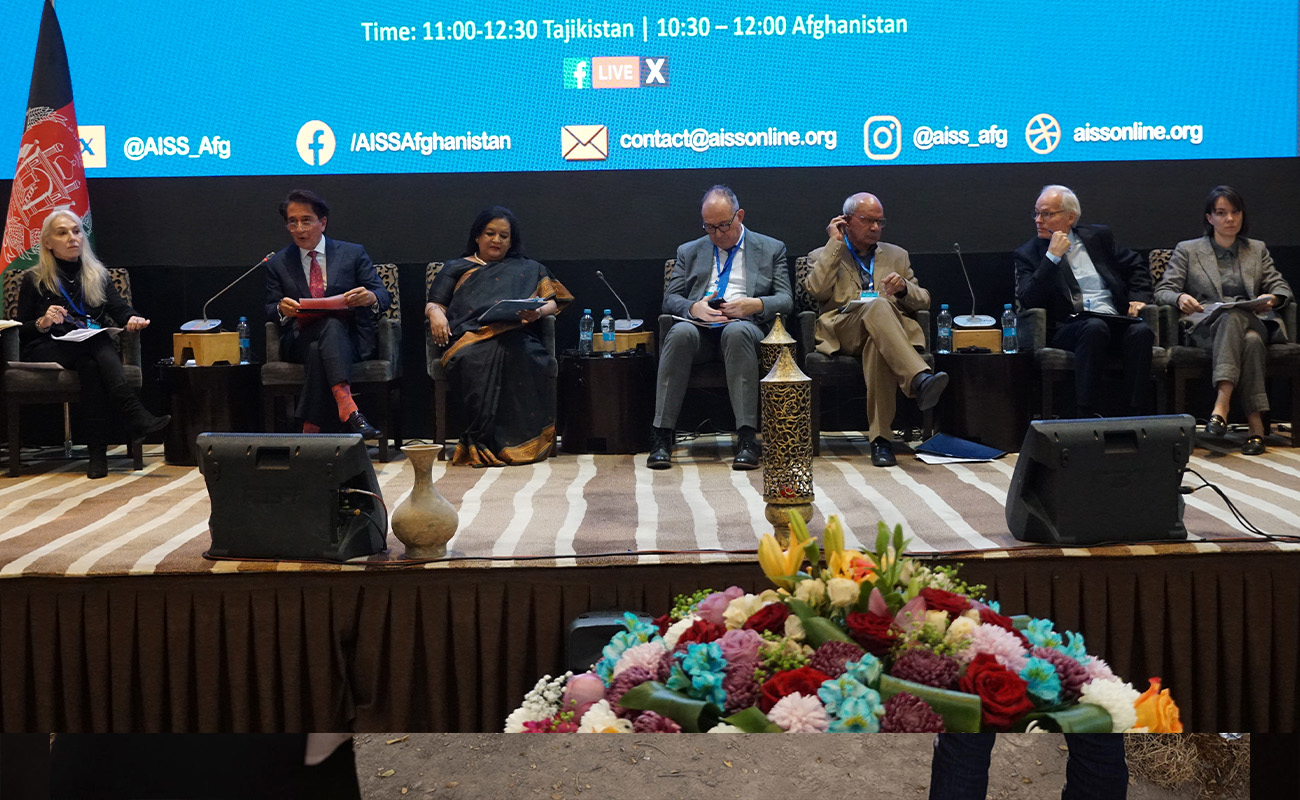Shifting Dynamics in Afghanistan's Diplomacy: Perspectives from the Herat Security Dialogue
By General Asad Durrani
Afghan Institute of Strategic Studies (AISS) was founded two decades back under the aegis of the then President of Afghanistan, Hamid Karzai. Herat Security Dialogue is its flagship annual event participated by some well known Afghan hands from around the world. The last two rounds were held in Tajikistan because after the Taliban takeover, it wasn’t possible to assemble them in Afghanistan.
I used to attend these sessions in Herat and continue to do so in Dushanbe. My reasons are obvious – I’m stuck in this quagmire – but the sponsor’s motivation is not very clear. They probably don’t mind listening to a view not exactly in sync with the prevailing sentiments, which are essentially anti-Taliban.
Last year (2022) the Afghan participants surprised me. There was no Paki-Bashing which was the norm in Herat. Even America that left its supporters “high and dry” got away lightly. Only one young female journalist, now a refugee in the Promised Land, had the gumption to take the American Chargé De Affairs, conveniently based in Doha, to task. It was still a very useful round. The message from the so-called international community, though wrapped in some diplomatic mumbo jumbo, was that the Afghans who left their country because of the Taliban in power were now on their own.
The 2023 sequel (the eleventh) was therefore yet another surprise. Most of the participants still pleaded passionately to the powers that be to come rescue the country and hold the Taliban feet to fire. It was my unpleasant duty to tell them not to hold their breath. Of course, the Yanks and many others are back – but essentially to woo the Taliban before they jumped hook line and sinker in the Chinese Camp. India has played its cards deftly as always – ridden the rising tide.
Pakistan was back in the crosswire – undoubtedly pushed by its latest refugee policy, criticised from all quarters. The old arrows of “strategic depth (SD) and blow back” were taken out of the quiver. This time I didn’t even bother to ask if anyone could define SD; or to tell that every country needs it (Ukraine was called Russia’s SD by Stratfor, a CIA Cover, in 2014); or to explain that this blow-back business is not due to our long-standing Policy that saw off two superpowers from our neighbourhood, but because we didn’t get the post-US Afghanistan right.
Pakistan was represented by Afrasiab Khattak, Bushra Gohar, Mohsin Dawar and me. All of us were on one panel or the other. India probably had a larger contingent but only two spoke from the Dias. Jyoti Malhotra moderated the session on “Afghanistan a Security Black Hole” and another Indian Lady, Ashita Mittal, based in Tashkent as the regional representative of the United Nations Office on Drugs and Crime (UNODC) for Central Asia, was my co-panellist in the session on Regional Consensus. The latter gladdened my heart by saying that in some Afghan circles, I’m regarded as “an institution”. I didn’t have the courage to tell her that most of the decision makers in Pakistan consider me as a “kabab main hudi”, an irritant. Come to think of it, both can be taken as compliments.
True to my mandate, I conveyed to the audience that in the Afghan context, “Regional Consensus” was for the birds. (If it worked anywhere else, I would not know.) Post the Soviet Withdrawal, we toyed with many a formula like 5+2 and 3+0 but nothing ever took off. During the American occupation some of the regional powers seemed to have had an understanding that after the NATO got its marching orders, we’ll work together to help the war-torn country back on its feet. Post August 2021, no two countries have joined hands to do this God’s Little Acre any good. Bilaterally though we all have tried to muddle through. There is a remote chance that the countries that consider Daesh a mutual threat might resort to some Intelligence sharing. Even remoter is the possibility that in the ever more polarising world: East-West due to the US-China rivalry and after the recent crisis in the Middle East, a North-South Divide; our Region just might rally around to bring Afghanistan on board.
It was also my privilege to correct the title of Black Hole for Afghanistan. Bermuda Triangle would be more appropriate. It sucks in Empires and anyone that happens to be in the neighbourhood, and throws them out duly sobered down. We in the Region have no choice but anyone faraway that jumps in to retrieve the Afghan blanket, will be mauled by the Bear.
Another surprise was in store when Michael Semple (and old Af-Pak Hand who became a persona non grata in both for hobnobbing with the Taliban) took the stage and put the conventional wisdom on its head. According to him, the Taliban have ambitions beyond the borders.
Afghans are perhaps the most talented people on Earth. The heart-warming performance by a youthful orchestra based in Portugal that was flown-in for this occasion was still in a class of its own. How they played Western and Afghan numbers was a befitting finale to HSD11.
PS: I continue to believe that any effort to bring together the Afghans in-and-outside Afghanistan would be our best tribute to the founder of this country on the Toynbee’s Eastern Crossroad of History.
General Asad Ahmed Durrani is a retired 3-star rank general in the Pakistan Army and presently a commentator, speaker, and author. General Durrani is the former Director of the Pakistan Army's Military Intelligence (Inter-service intelligence, ISI). After retiring from the army, he served as Pakistan's ambassador to Germany (1994–97) and Saudi Arabia (2000–2002).
Academicians and Officials interested to publish their academic pieces on this page, please approach us through: opinions@aissonline.org
The article does not reflect the official opinion of the AISS.

